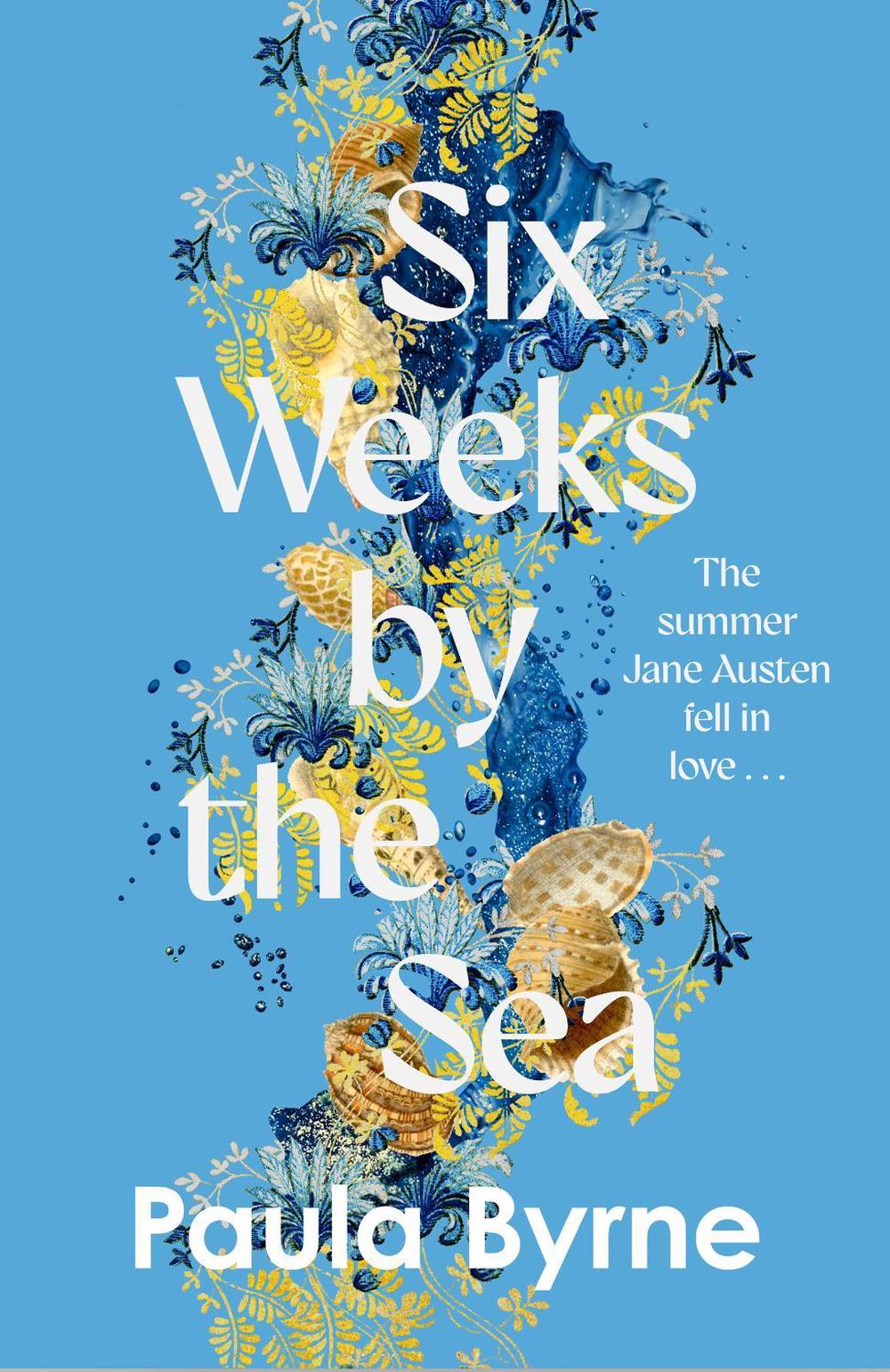Paula Byrne
Six Weeks By The Sea
Six Weeks By The Sea
Couldn't load pickup availability
Set against the backdrop of Austen’s family, the tensions of the war against France, and naval and colonial politics, Six Weeks By The Sea is the fascinating story of how the most famous romance writer of all time fell in love for the first time.
Susan's Review
Paula Byrne is a prolific writer of critically acclaimed and best-selling biographies. Her more famous subjects include the novelists Evelyn Waugh, Thomas Hardy and Barbara Pym (I had no idea that Pym had a brief affair with a Nazi before the outbreak of World War Two … such are the irrationalities of romance). Byrne has also produced no less than four books on Jane Austen, been an expert consultant for TV versions of Austen’s novels and has edited academic collections about a writer to whom she has devoted a great deal of her scholarly life.
Her enduring love of Austen’s work is evident in her newly released and utterly charming historical novel Six Weeks by the Sea, published to coincide with the 250th anniversary of Austen’s birth. Combining extensive historical research and imaginative flair, the novel was motivated by a question that has long intrigued many readers: did Jane Austen ever fall in love? As Byrne writes in her Afterword: “Surely, people say, the world’s most famous and beloved authors of romantic novels – the creator of Elizabeth Bennet and Mr Darcy, Anne Elliot and Captain Wentworth – must have been in love herself.” Byrne’s response is to ground her novel in a real time and place – six weeks in 1801, when Austen’s family spent a six-week seaside holiday in Sidmouth, a picturesque town in Devon that continues to offer spectacular views of the ocean. Blending fact and fiction, the romantic narrative centres on Jane Austen’s encounters with two potential suitors: the fictional figure of Captain Parker and a real lawyer called Samuel Rose, who it would seem Austen never actually met. The novel’s Afterword provides a detailed account of the extent to which its characters and events are based on reality, but what ultimately matters is how Sex Weeks by the Sea works as a novel.
It’s not only an engaging example of historical fiction and romance in terms of its content. It’s also written in a characteristically Austenian style: the carefully constructed three-part sentences; the use of abstractions; the elegant and sometimes caustic wit; the sparkling repartee. This skilful emulation of Austen’s style, one which never lapses into laboured pastiche, is one of the great strengths and pleasures of this highly readable novel. What’s also impressive is the novel’s subtle movement beyond romance and domestic life to raise ethical issues about slavery, homosexuality and interracial marriage, without falling into the mistake of superimposing a contemporary perspective onto a novel set in the early nineteenth century.
In all her work about Jane Austen, Byrne reminds us that although Austen’s novels were published anonymously, she was a professional writer, dedicated to her craft: a fact which her family chose not to mention on her tombstone. As a lover of Jane Austen’s writing, one of my saddest experiences was viewing that tombstone in Winchester Cathedral. While the inscription praises Austen’s personal qualities – “the benevolence of her heart, the sweetness of her temper, and the extraordinary endowments of her mind – as well as her Christian virtues – “her charity, devotion, faith and purity” – Jane Austen the writer is entirely erased. We are fortunate to have her fiction as her legacy. My favourite novel remains Pride and Prejudice - I wouldn’t change a word of this beautifully crafted, brilliantly witty and clever comedy of manners (Helen Garner loves it too: see her personal essay called “Very Many Spoilers Are Contained Within,” in her collection Everywhere I Look). Whatever your favourite, a 250th anniversary is the perfect time to read Six Weeks by the Sea; to re-read Austen’s novels; and to peruse the beautiful editions published for the occasion, now available in the Lane Bookshop.
'No one is better qualified than Byrne to imagine and expand upon Austen’s true romance. Her treasure chest of Austen knowledge and her ability to spiritually inhabit historical figures are displayed to fine advantage' WASHINGTON POST
Summer 1801. Sidmouth, England.
The Austen Family descends upon a fashionable Georgian seaside resort in Devonshire for a six-week holiday. Jane's brother, Frank, is on leave from the Royal Navy, and dearly wishes to unite his sister with his friend Captain Peter Parker. But another holidaymaker, a handsome stranger, catches sight of Jane and is determined to make her acquaintance. This rival to Captain Parker is Samuel Rose: a lawyer, literary man and abolitionist. As the weeks pass, Jane's relationship with both men brings about unexpected surprises. By the end of the summer, the course of her life will have changed forever.
Set against the backdrop of Austen’s family, the tensions of the war against France, and naval and colonial politics, SIX WEEKS BY THE SEA is the fascinating story of how the most famous romance writer of all time fell in love for the first time.
Share


